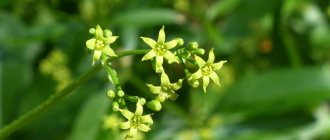To treat various types of diseases, both drug therapy and traditional methods are used. All kinds of herbs and plants are used. Rosehip is one of these. In this article we will look at treatment with rose hips for pyelonephritis , and also provide several recipes for decoctions that will help you get rid of the unpleasant disease.
The plant has a beneficial effect on the human body, namely:
- cleansing blood vessels;
- improvement of metabolism;
- strengthens the body;
- increases immunity;
- helps improve digestion;
- helps with inflammation.
Treatment of pyelonephritis at home - buy a course
What are the benefits of rose hips for the kidneys?
Rosehip is a storehouse of vitamins, macro- and microelements necessary for the normal functioning of the body. In very high concentrations it contains:
- vitamin C, it strengthens and supports the body, increases its resistance to any diseases, promotes speedy recovery;
- vitamin E, which activates protective functions, preventing the negative effects of external factors;
- vitamin K, it has a beneficial effect on blood clotting;
- organic acids, tannins, tannins that have a pronounced antibacterial effect;
- pectins;
- potassium, calcium, phosphorus.
Their presence is responsible for the beneficial properties of rose hips for the kidneys:
- “sand” is removed from them in a timely manner, without having time to turn into larger stones that provoke severe pain;
- viruses, bacteria, and other pathogenic microflora are destroyed; rose hips are also useful for autoimmune diseases;
- organs are cleansed and begin to function normally due to the removal of “bad” cholesterol;
- the load on them is reduced due to the pronounced diuretic effect, as a result of which swelling disappears.
Folk remedies with rosehip promote comprehensive kidney health
With regular use of decoctions, infusions, and other folk remedies made from rose hips, the walls of blood vessels are strengthened and they are cleared of cholesterol “plaques.” As a result, all organs and tissues, including the kidneys, are better supplied with oxygen and other necessary substances, which has a positive effect on their performance.
Use during pregnancy and pregnancy
During pregnancy and breastfeeding, rosehip is one of the few permitted medicines.
- The vitamins and minerals it contains have a beneficial effect on the female body:
- ensure smooth functioning of the gastrointestinal tract and respiratory system;
- strengthen the heart muscle, help normalize blood pressure;
- neutralize the body from toxins and free radicals;
- accelerate the healing process of wounds;
- strengthen and restore bone and muscle tissue;
- prevent the development of anemia;
- contribute to the normal intrauterine development of the baby;
- reduce unpleasant symptoms of toxicosis.
Rosehip-based products, due to their diuretic effect, reduce swelling that often occurs during pregnancy and breastfeeding, and improve the functioning of the liver and kidneys. However, the dosage of the product should be checked with your doctor, and you should focus not on the adult dose, but on the child dose.
Rosehip flowers can tell the time. They bloom between 4-5 am and close at 7-8 pm.
How to brew and drink rosehip tea for the kidneys
To make tea for your kidneys as beneficial as possible, you need to consider the following nuances:
- If the recipe calls for chopping the fruit, the liquid must be strained when it is brewed. The pulp contains hard “hairs” that, if ingested, can seriously damage the mucous membrane.
- Do not pour boiling water over the fruits. The optimal water temperature is 70-80 °C. Otherwise, the drink significantly loses its benefits.
When brewing a drink in a thermos, it is recommended to first pour boiling water over its walls. This way you can retain heat for as long as possible.
Attention! The thermos flask is preferably glass. Contact with metal destroys almost all vitamins.
Classic recipe
The drink will require 3-4 tablespoons of fresh fruits and a liter of hot water. The berries need to be cut into several pieces or turned into pulp using a wooden kitchen hammer. Preparing the drink is extremely simple - pour hot water over the rose hips and brew in a kettle or thermos for 10-12 hours, adding a tablespoon of regular large-leaf black or green tea.
Drink the drink in mugs daily, twice or thrice, about half an hour after meals. Sugar, honey, lemon and other additives “for taste” are not welcome.
Rosehip tea helps get rid of waste and toxins, and is useful if there is sand in the kidneys
Vitamin tea
The drink is suitable for the prevention of kidney diseases. This tea also normalizes the activity of the entire excretory system, saturating the body with vitamins and other substances it needs.
To prepare tea, dry rose hips (1 tbsp) are mixed with approximately the same volume of other dried berries (currants, raspberries, rowan, viburnum, cherries). Then they are filled with 0.5 liters of water and a tablespoon of tea leaves is added. Brew rose hips with berries for the kidneys for at least ten hours. The recommended daily “dose” is two cups per day, after lunch and dinner.
Raspberries and black currants are inferior to rose hips in terms of the content of substances necessary for the body, but they are also good for health
Rosehip infusions for the kidneys
All parts of the plant are used to prepare the infusion. Useful substances contain not only rose hips, but also its rhizomes and leaves.
Infusion of rhizomes for kidneys
Only fresh rhizomes are used. They are collected where the environmental situation is favorable - away from factories, factories, highways and big cities.
The rhizomes are thoroughly washed and cut into small pieces. Then pour hot water (about 0.5 liters per 2 tablespoons) and leave in a saucepan under a tightly closed lid or in a thermos for 5-7 hours.
The infused liquid is filtered. Drink an infusion of rosehip rhizomes for the kidneys, one glass at a time, twice a day, 15-20 minutes after meals.
Fruit infusion
This drink is extremely easy to prepare. But only fresh fruits are suitable for it. They can be “identified” by their uniform red-orange skin and relatively soft flesh. For 100 g of fruit take 0.8 liters of hot water.
The rosehip is cut in half or “broken” with a wooden hammer. Then the berries are poured with water and kept in a saucepan under a tightly closed lid for 10-12 hours, wrapped in a towel.
Attention! It is best to prepare the infusion in the evening. The entire portion should be drunk over the next day.
Rosehip leaf remedy for kidneys
The concentration of nutrients in the leaves is not as high as in the rhizomes and fruits, but such a drink will be useful for preventing kidney disease and strengthening the immune system.
It is prepared from fresh leaves. For 100 g you will need 1 liter of water. The greens are chopped (not too finely), filled with water and left for 12 hours in a closed container. The taste is quite specific, but you should not sweeten the infusion with sugar or honey. The entire amount should be drunk in a day.
To prepare the infusion, use all parts of the rose hips at once.
Vitamin composition
The high healing qualities of rose hips are explained by its rich, multifaceted chemical composition.
Fruits contain a wide range of vitamins necessary for normal functioning of the body:
| B vitamins (B1, B2, B3, B6) | normalize the functioning of the nervous system, improve sleep, promote rapid recovery of the body after physical and mental stress |
| Ascorbic acid | increases the body's protective functions, helps the body fight viruses and infections faster and more effectively, and fights the harmful effects of free radicals |
| Vitamin A | regulates protein synthesis, normalizes metabolic processes, improves the functioning of the digestive tract |
| Vitamin E | prevents skin aging, accelerates regenerative processes, has a positive effect on the condition of hair and nails |
| Vitamin PP | normalizes redox processes, improves the functioning of the digestive tract, and has a beneficial effect on the functioning of the nervous system |
| Vitamin K | participates in hematopoiesis, improves blood composition and regulates blood clotting, prevents calcification of soft tissues |
In addition, the product warehouse is supplemented with minerals:
| Potassium | has a beneficial effect on the heart muscle, improves the functioning of the cardiovascular system, makes blood vessels elastic and stronger |
| Calcium | strengthens bone and muscle tissue, promotes normal skeletal development in a child |
| Phosphorus | strengthens tooth enamel, required for normal functioning of kidneys and liver, regulates hormone levels |
| Magnesium | normalizes the functioning of the nervous system, reduces the negative effects of stress, relieves depression, normalizes night sleep |
| Iron | prevents the development of anemia, takes part in hematopoiesis, participates in oxidative processes |
Due to the sugar content, rosehip has a fairly high calorie content - 100 g of raw material accounts for 109 kcal.
In this case, the BZHU is presented in the following ratio:
- proteins - 1.6 g;
- fats - 0.7 g;
- carbohydrates - 22.4 g.
Important! Due to the high sugar content, the product is not recommended for consumption by people suffering from diabetes.
Rosehip decoction for kidney disease
Rosehip decoction, in addition to preventing and combating kidney diseases, strengthens the ureters and restores their flexibility. As a result, waste, toxins and “sand” are removed from the body faster. It also gives a pronounced diuretic effect.
Root decoction for kidney disease
Rhizomes are dug up only in the fall, when they turn brown. They are thoroughly washed, dried, finely chopped and dried naturally or in an oven, electric dryer, or microwave.
To prepare a decoction, 100 g of rhizomes are poured into 0.5 liters of hot water. Simmer in a water bath for about half an hour or a little more, then remove from the heat and allow to cool to body temperature. Be sure to express the “thickness”. Take 1/3 or 1/2 cup, each time immediately before meals.
Important! A new portion of the decoction is prepared daily. Take it only fresh, for a maximum of ten days in a row.
Rosehip decoction for kidneys
The product has a pronounced anti-inflammatory and slight diuretic effect. It also gives a complex general tonic effect.
At 2 tbsp. l. fresh berries take 300 ml of water. The rose hips are finely chopped, simmered over low heat for a quarter of an hour, and allowed to cool. Drink 2/3 glass twice a day, before meals. After 30-40 days, a break between “courses” is necessary.
Seed decoction
Take a teaspoon of seeds per glass of hot water. The liquid is boiled for a quarter of an hour, then infused under a closed lid for 2-3 hours. Drink no longer than a month, 1/4 glass, three times a day, before meals.
The finished decoction of seeds must be filtered so that the “hairs” do not get into the mouth and throat.
PREVENTION OF URILOSTICAL DISEASE
By following simple recommendations, everyone can prevent kidney disease. Here are some simple rules:
- Eating fatty, salty and smoked foods in large quantities has a detrimental effect on kidney function. Alcohol and smoking have the same effect. It is worth limiting the consumption of these types of products.
- A person should drink at least 1.5 liters of liquid per day. This can be purified water, tea or compotes. But it’s better if it’s just purified water.
- You cannot overcool the body. Cold has a bad effect on the kidneys and accelerates the development of diseases.
Recipes with rosehip root for kidney stones
Rosehip for kidney stones can be taken in courses with a break of 4-6 weeks. The products are very useful in the presence of stones. They help get rid of pain, “dissolve” them and remove the remains naturally.
For maximum effect, dried rhizomes are mixed with strawberry leaves, black currants, and hop cones (in equal parts - 1 tbsp each). Pour in 1 liter of hot water and keep it covered or in a thermos for 2-3 hours. Strain the liquid, drink 1-2 tbsp. l. twice a day, before meals.
An infusion is prepared similarly from the rhizomes of rose hips, knotweed and horsetail. The proportion of ingredients is 6:2:1. You will need 0.75 liters of water. Take it half a glass each time before meals for no more than a month in a row.
There is another option. Pour a tablespoon of dry horsetail into a glass of boiling milk and keep it on the stove for another 10-15 minutes. After cooling the liquid, it is mixed with a prepared decoction or infusion of rhizomes. In this recipe for kidney stones, you can also use rose hips.
It is quite possible to remove kidney stones with the help of rose hips
Is it possible for children
Rosehip is a unique plant that is useful for people at any age. However, the use of plant-based products for some categories of consumers should be strictly dosed and occur only after prior consultation with a doctor.
We invite you to familiarize yourself with: rosehip syrup for children of different age groups.
Rosehip for children is a valuable source of vitamin C, which helps increase the body's protective functions and improve the functioning of the immune system.
- In addition, he:
- improves the functioning of the digestive tract due to the content of linolenic acid;
- has an anti-inflammatory effect, relieves inflammation and swelling;
- strengthens the cardiovascular system;
- Due to its diuretic effect, it facilitates the functioning of the liver and relieves stress on the genitourinary system.
The use of plant-based products by a child should be agreed with the pediatrician. As a rule, it is not recommended for children under 1 year of age to be treated with rosehip decoctions or infusions.
Rosehip for kidney nephritis
For pyelonephritis, remedies with rose hips not only stop the inflammatory process, but also help get rid of the increased fatigue and chronic fatigue typical for this disease. The course of treatment not only promotes recovery, but also strengthens the body as a whole.
The best remedy for nephritis is vitamin tea. To dry fruits (3 tbsp.) add 2 tbsp. l. large-leaf black and green tea and 1 tbsp. l. lingonberry and bearberry leaves. If desired, you can “supplement” with birch buds, sage leaves, corn silks, and immortelle flowers in approximately the same volume.
All ingredients of the dry mixture are crushed. Tea is prepared by pouring 1 tbsp. l. Collect a glass of boiling water and let it brew for an hour. Drink it 2-3 times a day, like regular tea.
Vitamin tea is both healthy and very tasty
Contraindications
The list of contraindications for which kidney disease definitely cannot be treated with folk remedies from rose hips is quite long:
- individual intolerance, at the slightest sign of allergy it is necessary to stop taking decoctions and infusions;
- increased acidity of gastric juice, regular attacks of heartburn, the problem is further aggravated due to the high concentration of organic acids;
- any pathologies of the digestive system;
- thrombophlebitis, a tendency to form blood clots; due to the high concentration of vitamin K, rose hips have the property of “thickening” the blood;
- severe diseases of the liver and gall bladder;
- heart problems, especially hypertension, rose hips increase blood pressure, cerebral hemorrhage is quite possible;
- gout, arthritis, arthrosis, other diseases of the musculoskeletal system in the acute stage.
Allergies to rose hips are not uncommon, so if you are prone to such reactions, try a new remedy with caution.
Rose hips and buds are not only beneficial, but also possible harm. Even in the absence of contraindications, the drugs should not be abused. Otherwise, negative consequences are very likely:
- development of non-infectious jaundice;
- constipation, flatulence;
- rashes, irritation, other skin problems, if they already exist, the question of whether it is possible to take folk remedies with rose hips is decided by a dermatologist;
- thinning of tooth enamel, caries, ulcers on the oral mucosa;
- leaching of calcium from the body;
- decreased bile production.
If a doctor has prescribed a course of medications with a similar effect, it is prohibited to additionally “clean” the kidneys with such folk remedies.
Important! Abuse of rosehip decoctions and infusions gives the opposite effect to the desired one, leading to impaired kidney function.









